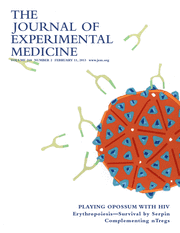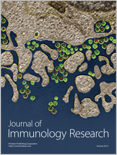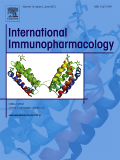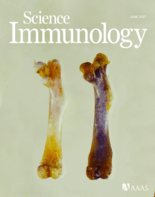
Immunity Inflammation and Disease
Scope & Guideline
Bridging gaps in understanding immune responses for a healthier future.
Introduction
Aims and Scopes
- Immunology and Inflammation:
The journal focuses on the mechanisms of immune responses and the role of inflammation in various diseases. This includes understanding cellular and molecular pathways that regulate immune function and inflammatory responses. - Autoimmunity and Related Disorders:
Research on autoimmune diseases such as lupus, rheumatoid arthritis, and multiple sclerosis is prominent. Studies often explore the pathogenesis, genetic predispositions, and therapeutic interventions for these conditions. - Infectious Diseases:
The journal publishes studies on the immune response to infectious agents, including viruses and bacteria, highlighting topics like vaccine development, immune evasion strategies, and host-pathogen interactions. - Cancer Immunology:
A significant area of research includes the interaction between the immune system and cancer, focusing on tumor immunity, immune checkpoint inhibitors, and novel therapeutic strategies targeting immune responses. - Translational Research:
The journal encourages translational studies that bridge basic immunology research with clinical applications, including biomarkers for disease diagnosis, prognosis, and therapeutic targets.
Trending and Emerging
- COVID-19 Related Research:
Research related to COVID-19 has surged, focusing on immune responses, long-term effects, and vaccine efficacy. This reflects the urgency of understanding the pandemic's impact on immune health and disease. - Microbiome and Immune Interactions:
There is growing interest in the relationship between the microbiome and the immune system, particularly how gut microbiota influence inflammatory responses and autoimmune diseases. - Personalized Medicine and Biomarkers:
Emerging studies are increasingly focused on personalized medicine approaches, including the identification of biomarkers that can predict disease progression and treatment responses in immunological disorders. - Novel Therapeutic Strategies:
Research is trending towards innovative therapies, including the use of cell-based therapies, mRNA vaccines, and other advanced modalities that harness the immune system for therapeutic benefit. - Inflammatory Pathways and Mechanisms:
There is an increasing focus on detailed studies of inflammatory pathways and mechanisms, particularly those involving novel cytokines and signaling pathways that may serve as therapeutic targets.
Declining or Waning
- Traditional Pharmacotherapy:
There has been a noticeable decrease in studies focused solely on traditional pharmacotherapy approaches for inflammatory diseases, as the field shifts towards exploring biologics and targeted therapies. - Animal Models in Immunology Studies:
Research utilizing animal models for immunological studies appears to be waning, potentially due to a growing emphasis on human-based research and in vitro studies that can provide more directly applicable results. - Basic Mechanistic Studies:
There seems to be a reduced emphasis on purely basic mechanistic studies without clinical relevance. The trend is moving towards research that offers direct implications for treatment and disease management.
Similar Journals

JOURNAL OF EXPERIMENTAL MEDICINE
Exploring the Depths of Disease MechanismsJOURNAL OF EXPERIMENTAL MEDICINE, published by Rockefeller University Press, is a renowned peer-reviewed journal dedicated to advancing the field of experimental medicine since its inception in 1896. With an impressive impact factor and categorized in the Q1 quartile for Immunology, Immunology and Allergy, and Miscellaneous Medicine, this journal stands at the forefront of medical research and innovation. It provides a prestigious platform for scholars and practitioners to disseminate groundbreaking findings that drive the understanding of disease mechanisms and therapeutic strategies. While the journal is not open access, it maintains high visibility and engagement within the scientific community, fostering collaboration among researchers, professionals, and students alike. The journal's consistent ranking in the top percentiles of Scopus illustrates its significant impact and commitment to excellence in medical research.

Journal of Immunology Research
Innovating Immunological Science: Bridging Knowledge GloballyJournal of Immunology Research, published by HINDAWI LTD, stands as a pivotal open-access journal in the realm of immunology, with a particular emphasis on advancing knowledge in both fundamental and applied aspects of the field. Since its inception in 1990, the journal has committed to the dissemination of high-quality research, earning a respectable impact factor that reflects its significance. Based in Egypt, it provides a platform for researchers from around the world, showcasing innovative studies and reviews that contribute to the understanding of immune system mechanisms. Its 2023 rankings place it in the Q2 category for Immunology and Allergy, and Q1 in the broader category of Medicine (miscellaneous), indicating a strong reputation among its peers. Through its open-access model, the journal promotes wide accessibility of cutting-edge research, catering to researchers, professionals, and students alike. With ambitions that converge through 2024, the Journal of Immunology Research continues to be an essential resource for those seeking to explore the forefront of immunological science.

Welcome to Immuno, a pioneering open-access journal published by MDPI that serves as a key platform for the dissemination of innovative research in the fields of immunology, biochemistry, and genetics. Established in 2021, this journal has rapidly established itself within the academic community, currently ranking in the 53rd percentile in Medicine (miscellaneous) and 50th percentile in Biochemistry, Genetics, and Molecular Biology according to Scopus metrics. With a commitment to advancing our understanding of immune mechanisms and their applications in health and disease, Immuno is dedicated to publishing high-quality peer-reviewed articles that contribute valuable insights to both researchers and practitioners. Positioned in the heart of Switzerland, its global accessibility and diverse editorial board are a testament to its aim to promote knowledge exchange among scientists, practitioners, and students alike. Explore the latest discoveries and advancements in immunological research through Immuno, where your contributions help shape the future of this critical area of study.

HUMAN IMMUNOLOGY
Fostering Knowledge in Immune Health and DiseaseHUMAN IMMUNOLOGY, published by Elsevier Science Inc, serves as a critical platform for disseminating research in the fields of immunology and allergy, as well as various aspects of miscellaneous medicine since its inception in 1980. With an ISSN of 0198-8859 and E-ISSN 1879-1166, this journal is pivotal for researchers and practitioners looking to advance their understanding of human immune responses and related conditions. The journal currently holds a respectable position within its field, as highlighted by its 2023 Scopus ranks—#114/233 in Immunology and Allergy and #132/236 in Immunology and Microbiology. Moreover, it maintains a Q2 quartile ranking in both Immunology and Allergy and miscellaneous Medicine, underscoring its influence and reach within the scientific community. Although it does not currently offer Open Access options, HUMAN IMMUNOLOGY remains dedicated to providing valuable insights and fostering academic discourse within its discipline, characterized by a rigorous peer-review process and a focus on innovative research trajectories.

International Immunopharmacology
Fostering Knowledge in the Dynamic Field of ImmunopharmacologyInternational Immunopharmacology, published by Elsevier, stands as a prominent journal within the disciplines of immunology and pharmacology. With an ISSN of 1567-5769 and an E-ISSN of 1878-1705, this esteemed journal is based in the Netherlands and features a robust commitment to disseminating high-quality research from its inception in 2001 through 2024. The journal has achieved impressive rankings, securing a Q1 category in Pharmacology and Q2 in both Immunology and Immunology and Allergy as of 2023. With its strategic focus on bridging the gap between immunology and pharmacological applications, International Immunopharmacology attracts a diverse readership, including researchers, healthcare professionals, and students interested in the latest advancements in therapeutic agents and immune system modulation. Furthermore, it offers an open access option, enhancing the accessibility and reach of its invaluable content. As a pivotal resource in the field, this journal not only facilitates the exchange of innovative ideas but also fosters a deeper understanding of the complexities of immunopharmacology in today’s research landscape.

Science Immunology
Connecting Science and Solutions in ImmunologyScience Immunology, published by the American Association for the Advancement of Science, is a leading journal in the field of immunology, recognized for its significant impact and rigor in advancing our understanding of immune responses and complex diseases. With an impressive impact factor that places it in the Q1 category of both immunology and allergy, as well as miscellaneous medicine, this journal is ranked #7 and #8 in their respective Scopus categories, reflecting its high-quality research output. Since its inception in 2016, Science Immunology has been at the forefront of interdisciplinary immunological research, fostering crucial insights that link immunology with pressing health challenges. The journal is committed to providing open access to its content, ensuring that groundbreaking findings are accessible to a global audience of researchers, professionals, and students. Its anthology not only addresses fundamental immunological mechanisms but also enhances the dialogue on translational applications and therapeutic interventions, solidifying its position as an essential resource within the scientific community.

IMMUNOBIOLOGY
Pioneering insights into the complex world of immunobiology.IMMUNOBIOLOGY is a prestigious academic journal published by Elsevier GmbH that significantly contributes to the fields of hematology and immunology. With its ISSN 0171-2985 and E-ISSN 1878-3279, this journal has been disseminating impactful research since 1979, positioning itself at the forefront of immunological and hematological advances. The journal holds a commendable ranking of Q2 in Hematology and Q3 in both Immunology and Immunology and Allergy, indicating its relevance and influence within the scientific community, as reflected by its Scopus rankings. Although IMMUNOBIOLOGY operates under a subscription model, it remains dedicated to expanding knowledge across disciplines, fostering innovative research, and facilitating connections among researchers, professionals, and students. Situated in Munich, Germany, this journal is continually evolving and aims to remain an essential resource for the latest discoveries and insights in the realms of immunity and blood disorders, ultimately enhancing our understanding of complex biological systems.

BMC IMMUNOLOGY
Unlocking the Mysteries of the Immune SystemBMC Immunology is a prominent open-access journal published by BMC that has been at the forefront of immunological research since its inception in 2000. Based in the United Kingdom, this journal aims to advance the understanding of immune system functions and disorders through high-quality, peer-reviewed articles. With an impressive scope encompassing various facets of immunology, BMC Immunology has earned a Q3 ranking in the Immunology category according to the 2023 category quartiles, demonstrating its growing impact and relevance in the scientific community. Researchers and professionals will find valuable insights in its array of published works, spanning both foundational studies and innovative applications. The journal's commitment to open access ensures that cutting-edge research is freely available, fostering collaboration and advancement in the field. For those looking to stay updated on the latest developments in immunology, BMC Immunology stands as an essential resource for researchers, professionals, and students alike.

CELLULAR IMMUNOLOGY
Transforming Insights into Cellular Immune DynamicsCELLULAR IMMUNOLOGY is a prestigious journal published by Academic Press Inc. Elsevier Science, dedicated to advancing the field of immunology. Established in 1970 and converging ongoing research up to 2024, this journal has carved out a significant niche within the academic community, boasting a notable Q2 ranking in the Immunology category and holding a respectable 67th percentile ranking within Scopus for its contributions to the disciplines of Immunology and Microbiology. The journal serves as a vital platform for disseminating high-quality research, reviews, and methodologies that elucidate the intricacies of cellular immune responses, thereby benefiting researchers, professionals, and students alike. Although it does not offer open access, the journal's impact is evidenced by its comprehensive coverage of pioneering studies and ongoing developments in the immunological sciences, positioning it as an essential resource for those seeking to deepen their understanding and engage with the latest findings in cellular immunology.

GENES AND IMMUNITY
Unraveling the Genetic Code of Immune ResponsesGENES AND IMMUNITY, published by SpringerNature, is a leading scholarly journal dedicated to advancing the field of genetics and immunology. With an impressive impact factor and a distinguished ranking in the Q1 quartile of both Genetics and Immunology disciplines for 2023, this journal serves as a pivotal platform for researchers and professionals looking to explore the intricate relationships between genetic factors and immune responses. Established in 1999 and continuously published until 2024, it features high-quality peer-reviewed research articles, reviews, and commentary that address critical issues and recent advancements in the field. The journal adheres to rigorous academic standards, evidenced by its strong Scopus rankings, making it a valuable resource for students, researchers, and practitioners alike who are seeking to deepen their understanding of genetics' role in immunity. For those looking to keep abreast of cutting-edge insights, GENES AND IMMUNITY is an essential read.